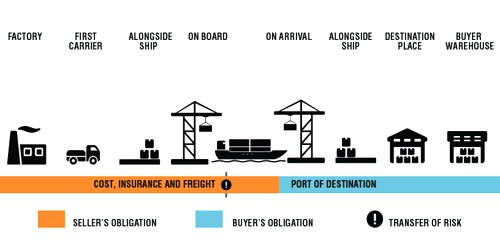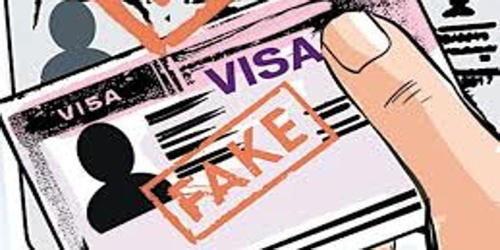Cost, Insurance and Freight (C.I.F)
C.I.F. abbreviation stands for the words cost, insurance and freight. CIF is a conventional method of shipping goods for importers. These terms are used in quoting the prices of goods. The seller must pay the costs and freight includes insurance to bring the goods to the port of destination. It is an expense paid by a seller to cover the costs, insurance, and freight against the possibility of loss or damage to a buyer’s order while it is in transit to an export port named in the sales contract. Importers generally buy CIF if they are new in international trade or they have very small cargo. However risk transfers from seller to buyer once the goods have been loaded on board, i.e. before the main carriage takes place. The term is used for ocean and inland waterway transport only.
The contract terms of Cost, Insurance, and Freight will define when the liability of the seller ends and that of the buyer begins. A GIF price means and includes the price of the goods together with all charges and expenses needed for the carriage of the goods to the destination. This quotation also covers the risk during transit. However, the risk is transferred to the buyer once the goods are loaded on the ship.
The seller’s responsibilities include:
- Purchasing export licenses as needed for the product.
- Covering the cost and contracts of moving or carrying the goods.
- Insurance to protect the value of the order.
- Paying for the price of damage or destruction of all goods ordered.
Freight must be arranged by the exporter and freight amount must be paid by the exporter as well. The exporter also contracts for insurance cover against the importer’s risk of loss of or damage to the goods during the carriage. CIF applies to ocean or inland waterway transport only. It is commonly used for bulk cargo, oversized or overweight shipments.
















